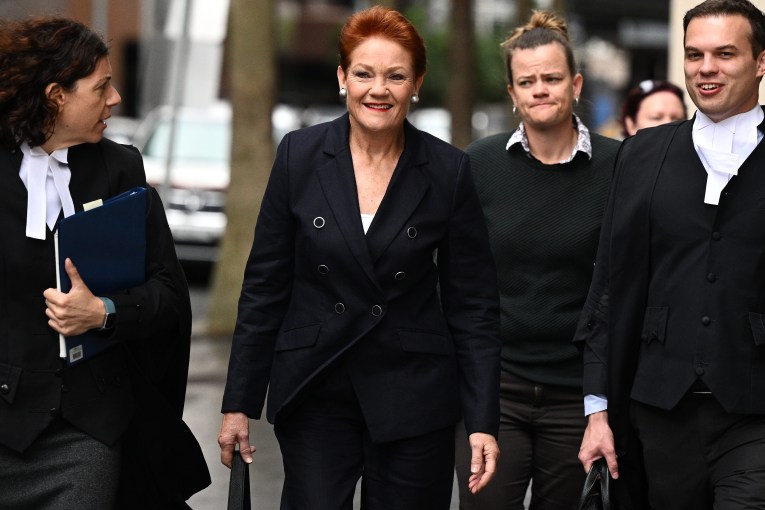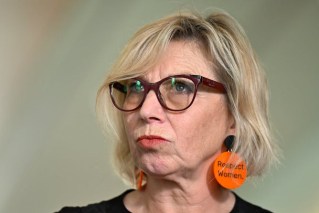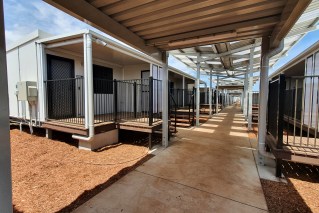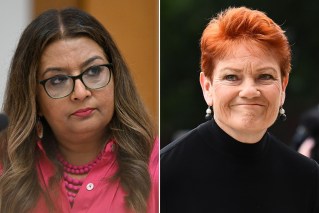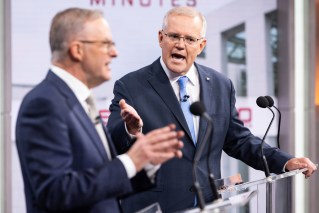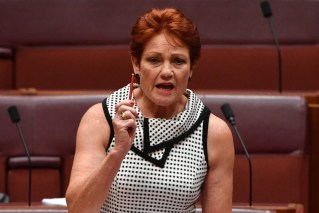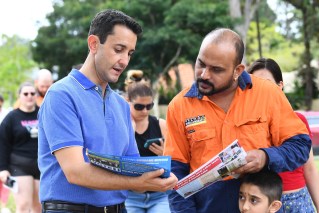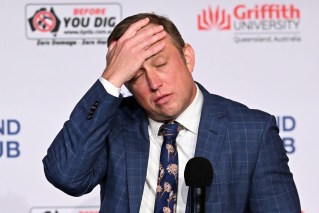Welcome to the new age of politics – unless, of course, you happen to be a woman
Just a few weeks after the treatment of women dominated the national debate – both inside and outside of parliament – it seems very little has actually changed when it comes to our main political parties, writes Dennis Atkins

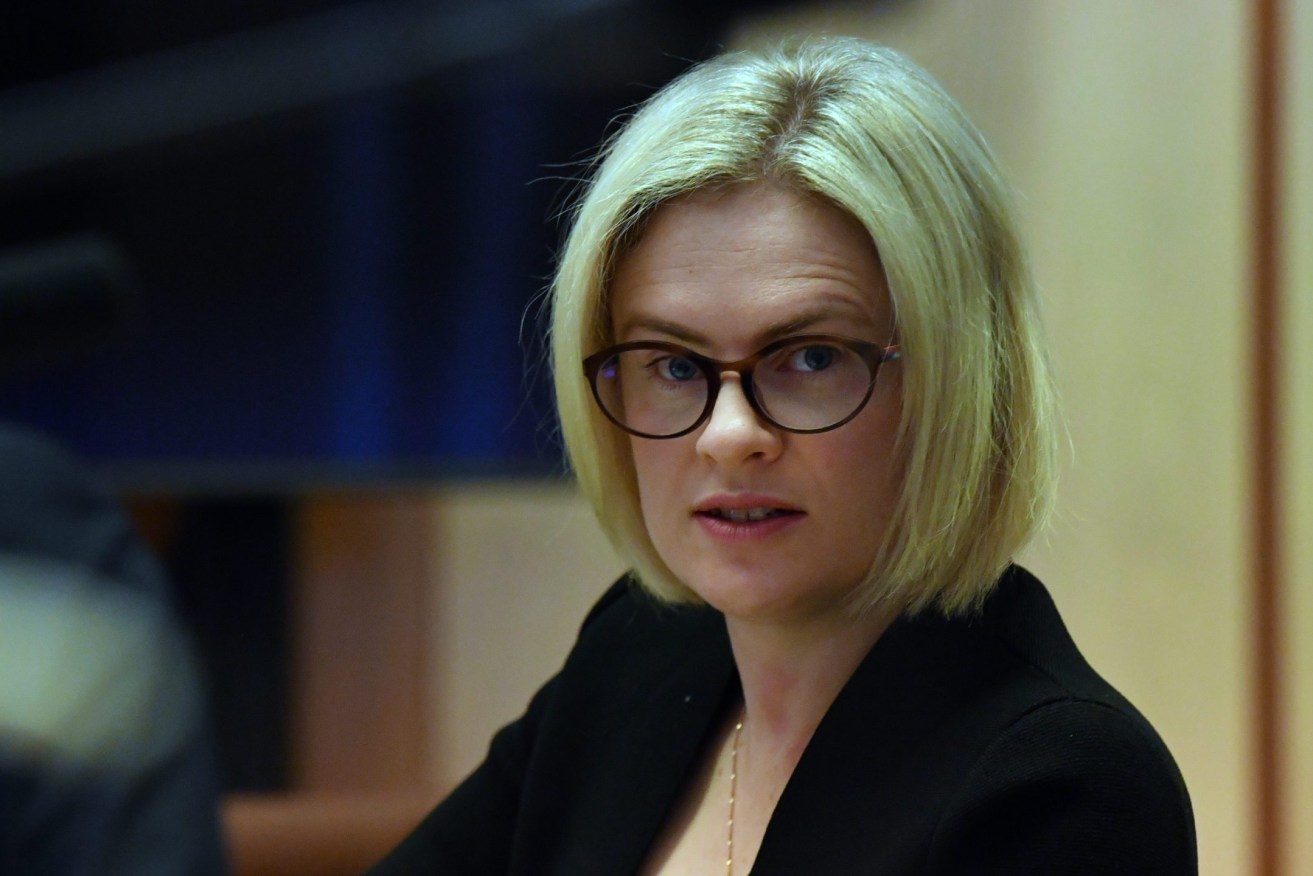
Liberal Senator Amanda Stoker has become the latest politician to accuse Senator David Van of touching them inappropriately. (AAP Image/POOL/Mick Tsikas)
Remember when the treatment of women was the topic that couldn’t be avoided?
It seems so long ago but it is just six to seven weeks since these debates – the sexual assault of Brittany Higgins, the fearsome speeches of Grace Tame, appalling boy behaviour in Parliament House and the white-suited indignation of Christine Holgate – dominated the public discourse.
The warp speed movement of the news cycle and the ability of the Morrison Government to throw squirrels around to distract and divert has given the Prime Minister enough cover to shrug off what looked like career threatening events.
“He is like the football team winning ugly, throwing chaos around the field of play, creating degrees of difficulty that look insurmountable but coming out ahead at the final siren,” said one LNP figure.
Community outrage over the treatment of women does look, and sound, like it’s subsided. Anecdotal feedback suggests the additional concern heard in February and March has all but disappeared – people have been distracted by vaccinations and then had their emotions stirred up over fears about the latest Indian viral variants.
If you want to note how little heed the major parties pay to all this, cast a sideways glance at the Queensland Senate preselections playing out in the LNP and Labor in recent weeks.
Both of these big parties – which will have the first claim to at least two out of three Senate spots on the left and right sides of the ballot papers – have given the best electoral real estate to men.
The LNP state council members voted by a margin of two to one to give the prized top place to Senator James McGrath over the prime minister’s favoured candidate, junior minister Amanda Stoker.
McGrath is guaranteed to be elected at number one as is number two, the “Nationals” nominee, Matt Canavan. Stoker comes in at third spot and, while she should be relatively confident of winning a Senate spot, her position is the most precarious.
The LNP almost always gets three senate spots. The last time they didn’t was in 1998 when John Howard faced a backlash over guns and taxes. In 2004 the Coalition managed four senate wins in Queensland, helping give Howard enough rope to dance dangerously with workplace reform.
The same story plays out on the Labor slate. The two winnable seats are going to be filled by incumbent men at the party’s state conference early next month with Murray Watt from the Left and Anthony Chisholm from the Right guaranteed selection.
The Labor story is more complicated than what happens on the conservative side. At the last election, when the ALP’s Queensland vote fell to an historic low, the party managed to get just one senator elected – Nita Green, a Left woman close to Senator Watt.
The party should get two senators elected when the next election is held, probably around grand final time this year, although it is not certain. If Labor’s vote slides as it did during the campaign in 2019, that second spot will become risky for the Opposition but the way the electorate has polarised during the pandemic suggests the ALP will walk away with two seats.
This makes the real contest the tussle for the last, sixth spot. That will be between the Greens Party’s not yet decided candidate, the third Labor pick and sitting One Nation leader Pauline Hanson.
The Greens nominee and the third Labor candidate will almost certainly be women – giving the safe seats to the boys and letting the women battle over the harder work.
It’s going to be a tough contest and will probably be a down-to-the-wire vote count between the Greens’ candidate and Hanson with the Greens the deserved favourites.
Three reasons stand out when rating the Greens as favourites. The party’s vote has been growing in Queensland – the 2019 Senate result was the second best in its history having increased significantly from 2016 and the state election outcome last year was also a high water mark.
Second, Hanson and her party have been pushed to the margins during 2020 and 2021, moved aside as the electorate has polarised over pandemic politics.
Last, the one-time great disruptor herself has become an irrelevance in the modern debate. She has missed the large debates – she subscribes to conspiracy theories over the pandemic and is outside the mainstream on vaccines – which further marginalises her and threatens her vote and she is playing to a smaller and smaller audience.
So, from what could be as little as four or five months out from an election, it looks like the LNP will win two and most probably three senate seats, the ALP will likely come away with two.
The last spot could be most directly fought out between the Greens and Pauline Hanson with the woman who has disrupted Queensland politics since 1996 facing her possible swan song. If this is the end of the line for Hanson it will be a signal event.
The one thing we can already take to the bank is that, as far as the major parties are concerned, the men are the winners.
